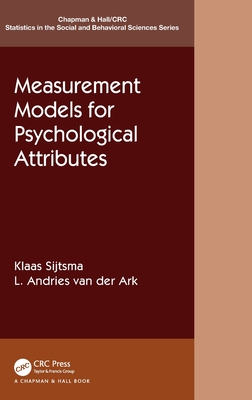A Course in Rasch Measurement Theory: Measuring in the Educational, Social and Health Sciences
Andrich, David, Marais, Ida
相關主題
商品描述
This book applies Rasch measurement theory to the fields of education, psychology, sociology, marketing and health outcomes in order to measure various social constructs. The chief focus is on first principles of both the theory and its applications. Because software is readily available to carry out analyses of real data, numerous small examples are provided in the book. The software used in these examples, and which is helpful in working through the text, is RUMM2030 (Rasch unidimensional models for measurement).
The book's main goals are to equip researchers with the confidence they need in order to be in control of the analysis and interpretation of data, and to make professional rather than primarily statistical decisions mechanically. Because statistical principles are necessarily involved, reviews of the requisite statistics are provided in the Appendix.
The content is based on courses that have been taught both online and in intensive form for over two decades. Although first principles are emphasised, much of the book is based on research conducted by the two authors and their colleagues.
作者簡介
Ida Marais BSc, (North-West), MSc, PhD (Auckland) is a Senior Research Fellow at the Graduate School of Education's Psychometric Laboratory at The University of Western Australia. After graduating with a degree in Computer Science and Psychology, she worked as a computer analyst / programmer for a number of years before being awarded a University of Auckland doctoral scholarship and completing her MSc and PhD in Cognitive Psychology. Since then she has been a researcher and lecturer in the fields of Psychology, Health and Education in New Zealand and Australia. Her research activities focus on psychological and educational measurement, especially the measurement of change over time. Using simulation software she developed, she also studies the effects on estimates of data that violate the Rasch model.

















